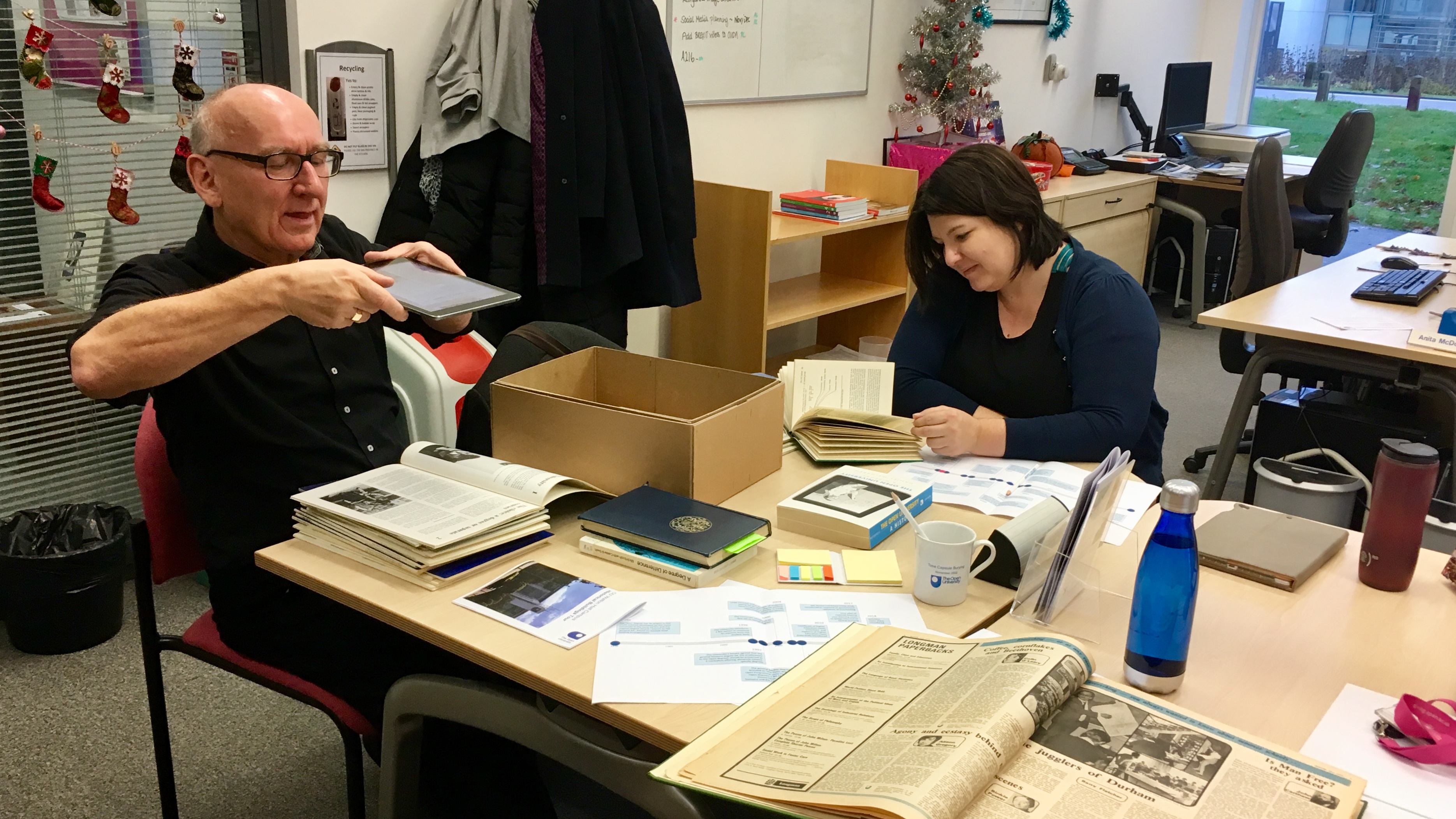[Rehana Awan – Student Communications and Engagement Manager, and Carol Dowell – Open degree student]
[Rehana] We’re here today to talk to you about the importance of community, building a sense of belonging to the University and how important that is to the Open Programme, and we’re very pleased to have Carol joining us today. The way that we’d like to share that story is through using a map as a metaphor.
So, what we’ve got here is the Land of Engagement and Belonging, where our students sit at the centre. But before Open Programme students even become Open Programme students, they’ve done a whole process of thinking, using their compass about whether or not they want to be generalists or specialists; do they want to focus on interdisciplinary or multidisciplinary study, and then once they’ve decided on the Open Programme and that multidisciplinary is their way, they will start to chart their course through the map.
[Carol] Tutors provide an all-important bridge for students. Tutors are key to the student journey as they enable and support the teaching materials, provide context and feedback and are often the face of the university, as they are sometimes the only person from the university the student will meet.
The tutors treat me like a person rather than a student and encourage engagement with the core of the institution. Students can access several further key student support mechanisms, sometimes via ALs, sometimes directly. The transport methods to the ‘Mountains of Support’ illustrate the different means to access these. Here we have MILLS interventions, which are centralised email interventions sent at key points in the student journey; enrolment, TMA deadlines, moving on etc; the Student Recruitment and Support Centres, the Student Support Teams, Educational Advisers, Library Services, Careers and Employability Services. There are other student support mechanisms not shown in the Mountains which are still key, such as IT support.
[Rehana] Feeling part of this community is really important for our ALs. We’ve got the whole of the Mountains of Support there backing up students but, back at the main landscape, you’ll see again that there are some little boats crossing here – we’ve got our yachts, and they are other mechanisms and ways that we use on the Open programme to help students to feel part of this community.
We’ve got student shadowing – we’ve been really lucky this year to work with 4 other students on the student shadowing programme; we’ve also got the work that we do with the OU Students Association, whether that’s through attending the conference, running workshops there, articles in the magazine; but also we’ve got the qualifications site. The Open Programme qualifications site hosts really key resources that help students to make those links that are really important about their learning, that help them make the connections about employability skills, and how they can use and describe their degree. There are forums on there as well where students can chat and engage with each other, which we’d like to increase traffic to. But then there are also online sessions that we run for students with Careers and Employability Services, with Library Services, and we’re about to do a module choice session with Peter and Helen as well next month. So, think about all these different ways that we can kind of help students to feel part of the community. We also have the Badged Open Course – Multidisciplinary studies: the value and benefits – which is on OpenLearn, and what we’re hoping is that there’s something there for the sector as well, to help other students look at their multidisciplinary or interdisciplinary journeys, help them to look at the skills that they’re gaining and how they can help with the Fourth Industrial Revolution and describe the their degree to employers and the value of that degree.
[Carol] I feel that the OU does it’s best to try and encourage community, there are forums for modules and groups. This year my tutor has been extremely active in this and there is a lot of traffic. The destination is the Bay of Contentment where you can see retention, achievement, completion, career development, personal achievement – all of those things that students are working towards in their journeys and the things that engagement and community building can support students in attaining. However, they still need to pilot their way through the informal student communities and support mechanisms like Twitter, Facebook, WhatsApp and Instagram. You can see the pirate flag flying here as a warning, because despite the positive experience I’ve had with social media, I appreciate that might not be the same for all students.
[Rehana] So, also in the Sea of TMAs you’ll see that there are some things that can throw our students off their journey getting to the Bay of Contentment – we’ve got a lack of confidence chart, we’ve got time management, we’ve got disability or health issues, work and family commitments. These are all things that our students have to face to get through to the end and it can throw them off course. But they do get there, and you’ll see that X does mark the spot.
[Carol] There are still so many exciting future possibilities in the [hot air] balloons, growing on the skills that they have gained from studying on the Open Programme. They’re ready for the Fourth Industrial Revolution and to have an impact to shape the world with their problem solving and hopefully carry on with lifelong learning. Studying a genre out of my comfort zone seems to have had an impact on my ability to do my job; I learn faster and I’m more alert, my brain seems to have been kicked up a gear.
[Rehana] And that’s our Open Programme student journey.
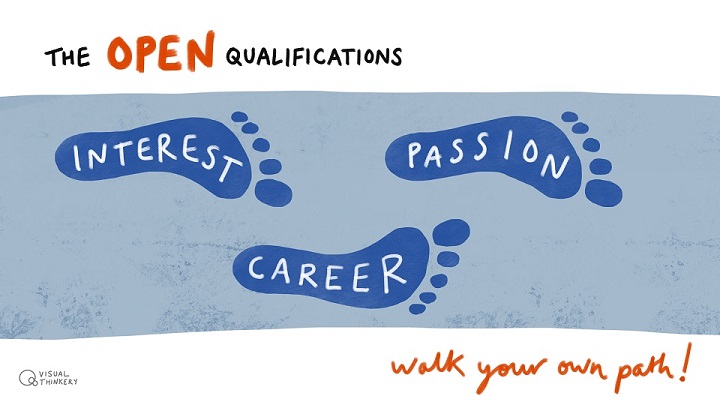
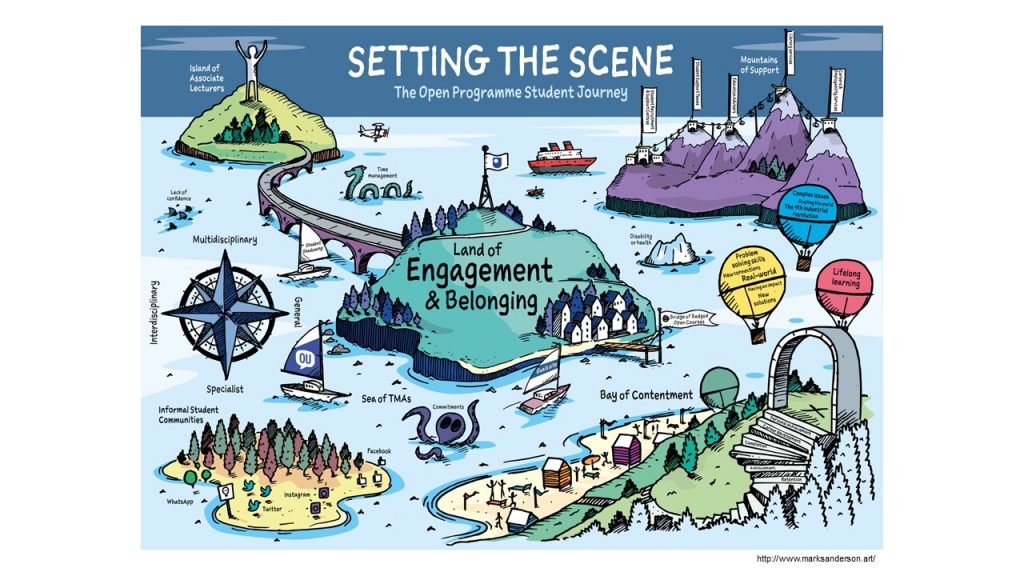
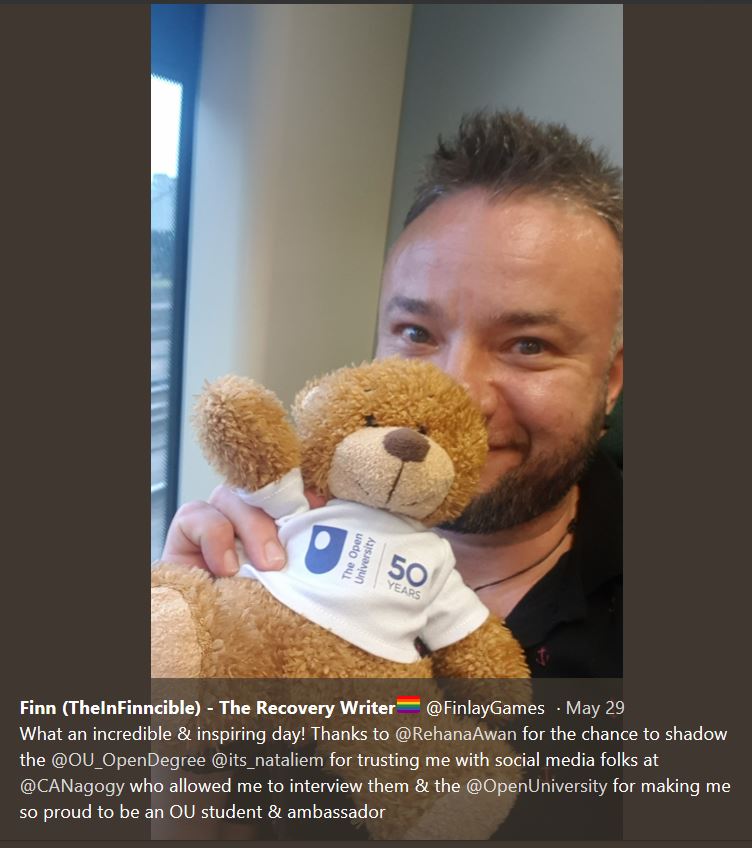
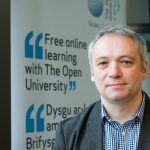 We are delighted that Professor Martin Weller has been appointed as the new Chair of the Open Board of Studies in our 50th anniversary year!
We are delighted that Professor Martin Weller has been appointed as the new Chair of the Open Board of Studies in our 50th anniversary year! 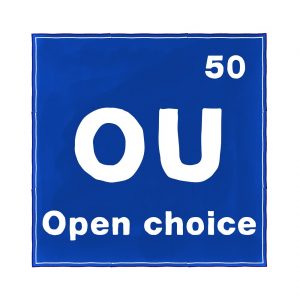
![a student is the best judge of what [s]he wishes to learn and that [s]he should be given the maximum freedom of choice consistent with a coherent overall pattern. They hold that this is doubly true when one is dealing with adults who, after years of experience of life, ought to be in a better position to judge what precise studies they wish to undertake](https://www.open.ac.uk/blogs/openquals/wp-content/uploads/2019/06/D7kBenbX4AE-lrD-1024x576.jpg) Sure, most universities offer options and electives, but a truly flexible, open choice is very rare. Specialism is of course, a desirable mode of study in many areas. But the reasoning behind the original open choice was that the changes in society and work places in the 70s meant that a wide ranging degree was suitable for many vocations. If that was true at the founding of the OU, then it is doubly so now. While we should be
Sure, most universities offer options and electives, but a truly flexible, open choice is very rare. Specialism is of course, a desirable mode of study in many areas. But the reasoning behind the original open choice was that the changes in society and work places in the 70s meant that a wide ranging degree was suitable for many vocations. If that was true at the founding of the OU, then it is doubly so now. While we should be  Rehana Awan is Student Communications and Engagement Manager in Curriculum Innovation, working primarily on designing and enhancing the student experience for Open Programme students and Associate Lecturer on the People, Work and Society Access module. Rehana is a Senior Fellow of the Higher Education Academy (SFHEA) and Fellow of the Staff and Educational Development Association (FSEDA). This blog post originally appeared on Rehana’s personal blog available
Rehana Awan is Student Communications and Engagement Manager in Curriculum Innovation, working primarily on designing and enhancing the student experience for Open Programme students and Associate Lecturer on the People, Work and Society Access module. Rehana is a Senior Fellow of the Higher Education Academy (SFHEA) and Fellow of the Staff and Educational Development Association (FSEDA). This blog post originally appeared on Rehana’s personal blog available 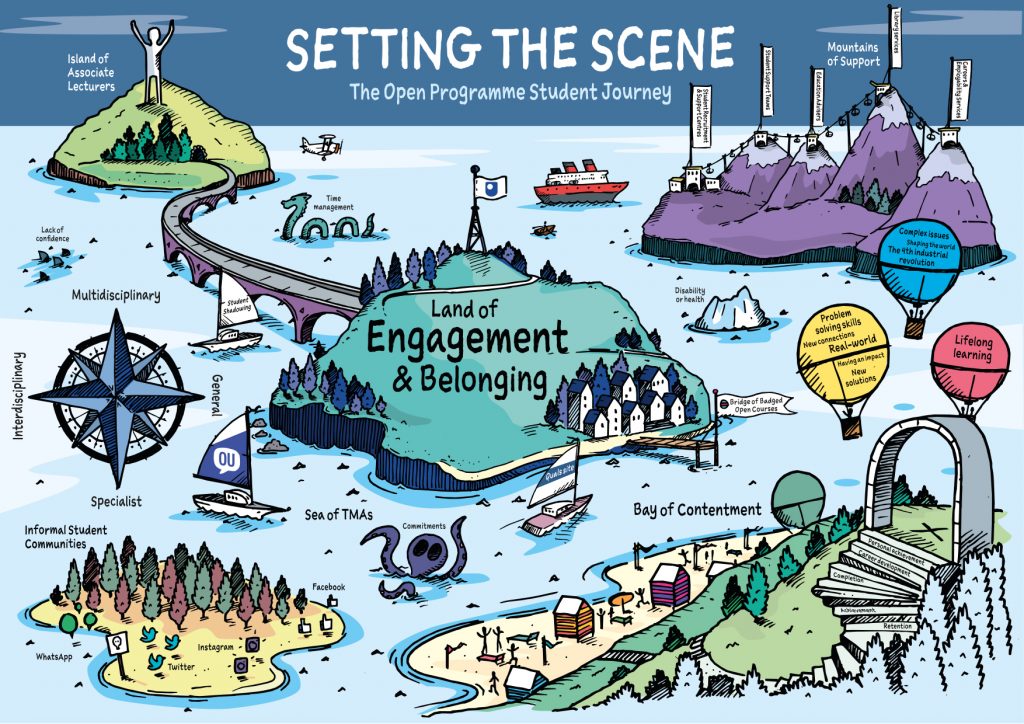
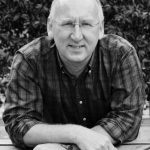 Professor Peter Taylor is the current Chair of the Open Board of Studies and Qualification Director for the BA/BSc (Hons) Open degree.
Professor Peter Taylor is the current Chair of the Open Board of Studies and Qualification Director for the BA/BSc (Hons) Open degree.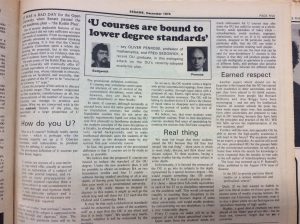
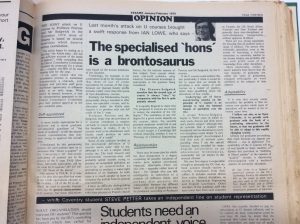
 Jay Rixon is a Senior Manager in Curriculum Innovation and responsible for the new MA or MSc Open qualification.
Jay Rixon is a Senior Manager in Curriculum Innovation and responsible for the new MA or MSc Open qualification.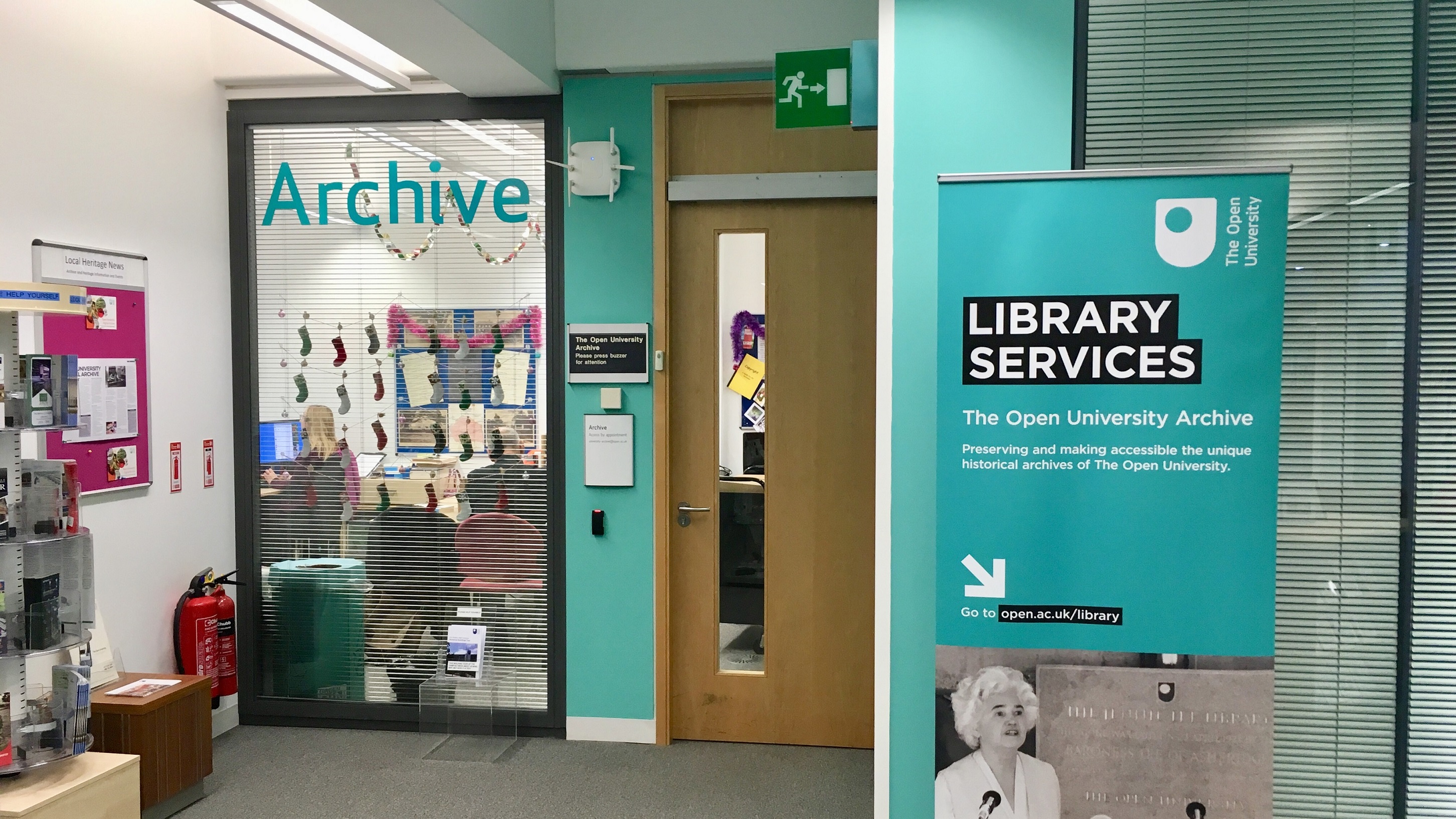 In the
In the 